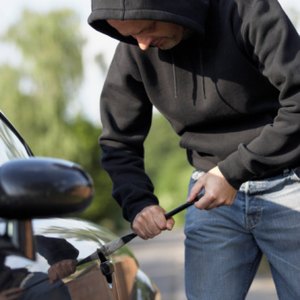
Automobile thefts are a fact of life, unfortunately, and it is possible that you might have your car stolen at some point in your life. When that happens, you will have to deal with your insurance company, possibly resulting in an increase in your rates. There is no firm answer to how much your rates may rise, since insurance companies set their own rates. In some cases, your rates might not increase at all. It depends upon the insurance provider.
Myths
One myth about insurance is that when a car is stolen, a person’s rates automatically rise. This isn’t true. In fact, unless someone is insured for comprehensive coverage, the insurance company will not even have to pay on the theft. Even if the insured person does have comprehensive coverage, the insurance company usually pays only what the car is worth, according to current market value. So, if a person is financing a car that is worth $5,000 but owes $6,000 on the loan, the insurance company pays only $5,000 if the car is stolen. While there is no certainty that the insurance rates will go up, it is likely a person with comprehensive automobile coverage on a stolen car will have to pay higher premiums.
Lowering Risks
In order to help prevent a car from being stolen, thereby keeping your insurance rates lower, certain measures keep cars slightly safer. For example, parking in a well-lit area reduces the likelihood of the car being stolen, since car thieves usually do not want unwelcome attention. In addition, having a high-visibility deterrent, such as a steering wheel lock or an alarm system, can make the car a less desirable target to thieves.
Reducing Rates
One way to reduce insurance premiums for someone who has had a car stolen is to have the vehicle identification number placed on every window on the car. This is done by having a qualified dealer etch it in the glass. Some insurance companies will reduce insurance premiums by 15 percent when such measures are taken to thwart criminals.
State Laws
Different states have different insurance requirements. In New Hampshire, for example, if someone in a family has a poor driving record or evidence of carelessness, the insurance premiums of other members of the household might rise. One reason for this is because New Hampshire requires all insurance carriers to insure the car for anyone who is driving the car. Therefore, if there’s a bad driver in a household, there is a chance that driver might use someone in the household’s car, thereby increasing the insurance risk on the vehicle.

